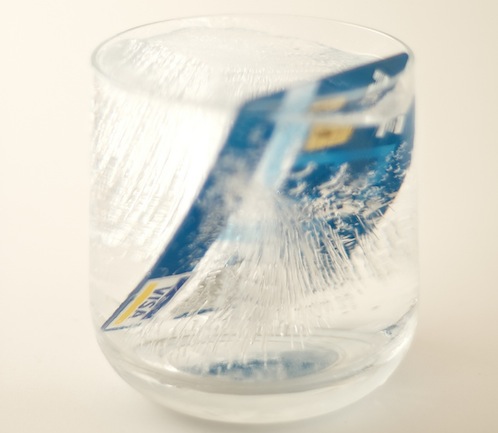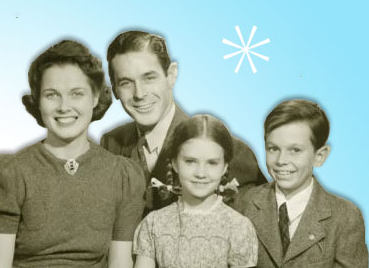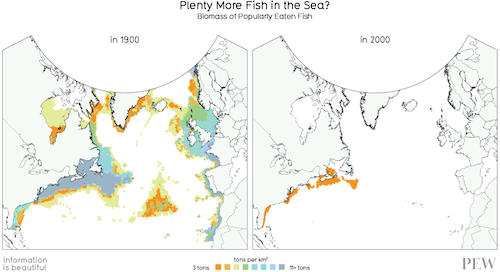Welcome to American Philanthropy! The charity scene has changed quite a bit in the past 100 years – from the elite ranks of oil barons to the democracy of text donations. Learning a little about the history of philanthropy in the U.S. will help you understand the present and future – and make you a smarter philanthropist.
Archive for the ‘TILE Blog’ Category
American Philanthropy
Tuesday, July 5th, 2011Happy Independence Day!
Monday, July 4th, 2011We know you’re as busy as we are getting ready to eat hot dogs (in celebration of America’s declaration of we’re-not-going-to-take-it-anymore), so let’s make this quick:
Q: Who was the first U.S. President to appear on a U.S. coin?
Work Is of Two Kinds
Wednesday, June 29th, 2011
(photo credit: Wonderlane)
Work is of two kinds: first, altering the position of matter at or near the earth’s surface relatively to other such matter; second, telling other people to do so. The first kind is unpleasant and ill paid; the second is pleasant and highly paid.
- Bertrand Russel, “In Praise of Idleness”
We all have to work. Even if we don’t have to work, we have to pretend to work (see, for example, the idle heiress halfheartedly designing handbags and “building her brand”).
So if we need to work, why not be as thoughtful as possible about it? First of all, do you agree with Bertrand’s categories of work? Can you be highly paid and unhappy? Can you be happy taking orders from someone else?
What kind of work would make YOU feel best about the way you spend your days and feed your family? What kind would help you achieve your life goals? Is it the same work?
Today at TILE… Into the Eurozone
Tuesday, June 28th, 2011Today at TILE we talked about the (apparent) economic chaos in Europe… How does one little country like Greece impact an entire continent? Why does (or why did) the euro make sense? Why do currencies seem so difficult to understand? Does all of this make you want to jump on a plane or curl up in your own backyard?
The euro was created in 1999 – a joint project by countries in the eurozone* to become more competitive on the economic playing field. By reducing the economic friction between the eurozone countries and increasing the group negotiating power between the eurozone and other countries, the idea was that the group would become stronger (in other words, the whole would be greater than the sum of its parts). For example, every time you skied up a mountain in Switzerland and down the same mountain into France, you would no longer have to stop to change currencies (and pay fees and taxes) before warming up with a hot chocolate. The idea was that with less hassle, more people would want to ski/ do business in that area.
Business Head, Philanthropy Heart: Steve Beck On Impact Investing
Monday, June 27th, 2011 Steve Beck is the Co-founder and CEO of SpringHill Equity Partners, an impact investment manager providing capital and support to growing businesses supplying basic goods and services to low-income households in Africa. After spending most of his career as a management consultant, Steve recently launched into the world of social venture capital. His goal? To more intentionally integrate his business “head” and philanthropy “heart.” He’d probably encourage others to do the same.
Steve Beck is the Co-founder and CEO of SpringHill Equity Partners, an impact investment manager providing capital and support to growing businesses supplying basic goods and services to low-income households in Africa. After spending most of his career as a management consultant, Steve recently launched into the world of social venture capital. His goal? To more intentionally integrate his business “head” and philanthropy “heart.” He’d probably encourage others to do the same.
TILE: How would you describe social venture capital in your own terms?
Steve: Social venture capital is about providing money (“growth capital”) and lots of help to fast-growing, for-profit ventures, with the intention of generating significant social (and/or environmental) benefits along with a financial return to the investors. This whole area has been struggling for a few years now to find language to describe what it is and does. The name that seems to have taken hold is “impact investing” — that is, investing with the intention to deliver social and/or environmental benefits in addition to financial returns. Think of it as venture capital to “not-just-for-profit” enterprises.
Making it Work: Internet Shopping Entrepreneurs Talk Shop
Monday, June 27th, 2011Carla Holtze and Kimberly Skelton used business school as an excuse to do what they already wanted to do: create a social website that roughly imitates the experience of having your best friend give you the thumbs-up or thumbs-down in the dressing room. Thus was born WingTipIt.com.
But starting a company isn’t easy – especially when it involves learning new technology in a relatively new industry. Watch them talk about what’s worked and what hasn’t:
Shocking Visualization of Fish Left in the Sea
Friday, June 24th, 2011Holy cow! (Carp? Cod? Crab?)
There are lots of good reasons to care about the environment and support the groups that fight to protect it. But one really good reason is that if we don’t do something, we’re going to run out of tuna melts and fish sticks.
This article in the Guardian talks about why we as a civilization are failing to do enough about problems like overfishing. Each new generation simply isn’t conscious of what things were like in the generation before them. Kind of like how your parents remember when kids used to play outside, but you’ll remember staying inside playing video games. And when you get old and cranky about how the kids these days never take off their holobands at the dinner table, you’ll wish for the days when people sat down in the living room to play Nintendo – not for the days when children played stickball in the streets.
Anyway, David McLandless (our data viz hero from Information is Beautiful) made a scary map of the devastation that tasty sea life has seen over the past hundred years. Definitely worth checking out if you still need a reason to care about the environment.
Apparently Debt is the New Cigarettes
Thursday, June 23rd, 2011
(photo credit: paalia)
Now, debt isn’t necessarily a bad thing, okay? But this is a little crazy. For the past 25 years, people in their early and mid-twenties have reported feeling a thrill of maturity and self-confidence when they first started to dig themselves into the debt hole.
Whether the money was going toward education or just going into the “I’ll pay for this pizza later” pile, young adults – especially those in the lowest 25% of income earners – said they experienced greater “self-esteem and perceived mastery” when they began to run up a tab.
Some kinds of debt are better than others. In general, debt that can be considered an investment in something – like a home, or an education that can get you a better job – is a good thing. But debt that gets you nothing but fees, interest rates, and a pizza that has long since been digested and forgotten – i.e., credit card debt – is not good.
The most important factor in determining whether your debt is good or bad is whether you’re able to make payments in full and on time. If you don’t, your credit score will suffer and you’ll find yourself on the road to Massive Debt.
Which, by the time you reach 28 (according to the study), will start to make you feel kind of bad about yourself.
What’s up with Greece?
Wednesday, June 22nd, 2011
(photo credit: David Spender)
You’ve heard that there’s a little trouble brewing in the glittering blue southeast corner of Europe, right? If you haven’t, Greece is in the middle of a nasty thing called a debt crisis. Basically, they can’t pay their bills, they’re gasping for air, and they’re pulling at ropes thrown by their European Union friends. So…
What’s the big deal? Why not let Greece’s failed economic policies fail? Who cares?
Fortunately for Greece, lots of people care. European nations (and investors throughout the world) see the Greek debt crisis as an infection that could spread throughout the EU and cause serious damage. Because nations in the eurozone all share the same currency (the euro), an economic disaster in one country will drag down the value of the currency for everyone.
So why hasn’t the problem been solved yet?
This (unbelievably) is the short answer, and definitely leaves out some of the finer points of the problem:
>>> Other EU nations have already stepped up and injected more than $100 billion into the Greek economy as a kind of bailout, but it’s just not enough. The Greek government has to cut spending and raise taxes in order to qualify for more aid, but citizens (and their powerful government reps) aren’t exactly excited about losing services and a bigger chunk of their paychecks.
>>> The government is also required to privatize some of its assets, which means selling valuable things like ports and banks and water utilities to private companies to raise cash. This also is not so popular – residents *like* their beautiful Greek coastline!
>>> Finally, private creditors (people who are owed money by Greece) have to agree to voluntarily hold onto and buy up more Greek debt (like government bonds). This is a hard sell in any case, but because publicly traded companies are legally obligated to act in the best interest of their shareholders, it may be especially hard to convince them that buying low-return debt in a failing economy is good for anybody.
What’s going to happen now?
Well, pretty much everyone involved agrees that they need to maintain a stable eurozone and a strong currency. So European nations are likely to keep trying to fix the problem any way they can. We’re not wizards over here at TILE, so we can’t say whether it will work, not work, or kind of work.
We will say that Greece is probably a pretty fun place to go right now if you’re looking for adventure civil-unrest-style!
What’s Your Consumer Label?
Tuesday, June 21st, 2011
(credit: Marketplace)
Labels: not just for food anymore. Companies have to organize their customers somehow – otherwise they’d be marketing denture cream to 8-year-olds and tampons to middle-aged men. Are you a High Rise Renter? Part of Main Street USA? Live in a college dorm? There’s a label for that.
How do they do it? Well they used to just make their best guess about who was watching a given channel at a given hour (guess who was watching Oprah at 4pm every day?) and tailor their advertising appropriately. But now marketers have all sorts of information about us. From online profiles to credit card transactions to Google searches and Foursquare check-ins, everyone with some kind of connection to the outside world is pretty much leaving a trail of data every where they go.
So – surprise! – a huge industry has sprung up to collect and analyze this data (called “data mining”) and sell it to the companies that want to sell you stuff. You can read all about it here, and “identify your lifestyle category” here.
